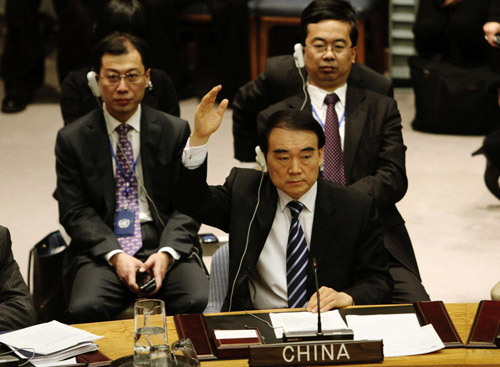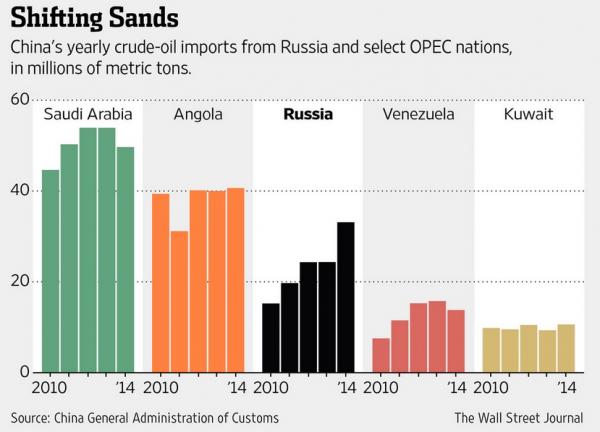The ongoing development of China-Syria relations could have a significant impact on post-war Syria and the influence of Western governments and donors on the country’s future. However, the extent of China’s future involvement in Syria depends on various opportunities and obstacles that could greatly influence Beijing’s financial and entrepreneurial contributions in the coming years.
In the past few weeks, several news reports have focused on China’s growing involvement in Syria. A Chinese delegation was reported to have attended the first International Trade Fair in Damascus since 2011, the beginning of the conflict; Chinese authorities pledged $2 billion dollars in aid towards Syrian reconstruction; in Lebanon, a growing number of Chinese business delegations and project investments linked to Syrian reconstruction; additionally, the Chinese Ministry of Civil Affairs approved the first of aid and early recovery projects for Syria.
Despite recent media coverage, Chinese involvement in Syria is not new. Last year, military trainers and advisors were deployed in Syria, following decades of weapons and ammunitions sales to the Asad regime. This deployment was largely motivated by security concerns over the presence of several thousand Uyghur fighters among extremist formations of the Syrian opposition; previously Beijing had nominated a Special Envoy for Syria, China’s second special envoy ever after the one for Sudan; and since the beginning of the conflict, China has provided at least indirect support for Asad by blocking resolutions critical of or sanctioning the regime at the United Nations Security Council.
Nevertheless, until now, Beijing has maintained a low profile Syria policy. Despite its support for the regime, Chinese authorities have so far preferred not to be perceived as at the forefront of the crisis, allowing Iran and Russia to play the core roles as Asad’s supporters. For this reason, China’s growing involvement is unprecedented. As the conflict appears to clearly shift in favor of Asad (at least in the west of the country) and talks about the return of Syria refugees increasingly dominate the debate about the region, Beijing is set to play a bigger role in investments and reconstruction, two fields it finds more congenial than military interventions and peace-brokering.
In a piece published on Syria Untold in April 2017, Annalisa Perteghella and I argue that China could be the European Union’s main contender in the Syrian reconstruction. This scenario is quickly becoming realized. China is in a privileged position due to two factors: its political closeness to the Syrian regime – which the west and Gulf countries lack – and its vast resources – which Russia and Iran lack. As such, China could play an influential role in post-conflict Syria, which would have significant implications for the development projects, and consequently, for the future socio-economic shape and stability of the country.
Opportunities: China’s Politically Unconditioned Investments
Planned reconstruction funds and aid from western donors, such as the European Union, World Bank, IMF and the United States may be abundant. In fact, especially European governments are eager to create a situation in Syria that allows the return of Syrian refugees to counter anti-migration sentiments at the pools. However, the reality is that this money may come with political conditions, if not over the political settlement of Syria crisis, at least over the mechanisms that regulate the allocation of funds, which are likely to alter any plans the Syrian government and its Russian and Iranian allies might have. The Syrian government has enacted numerous initiatives in the last year which show that the planned reconstruction of the country could impair the return of numerous refugees and change the socio-sectarian map of several areas of the country; something that the European Union – one of the few entities endowed with both resources and political will to contribute significantly to the Syrian reconstruction – would hardly support. Thus, to avoid conditional aid, the regime may find in China a viable alternative.
Capital from China may come without these complications. In the last two decades, the fast development of an export-oriented economy and huge current-account surpluses have allowed Beijing to cumulate a considerable amount of foreign reserves. Since the 1990s, these reserves have mainly been used in investments abroad to acquire resources and technologies to support the fast development and transformation of their domestic economy. China acquired rights over energy resources – mainly oil and gas – in central Asia, Africa, and the Gulf. It purchased major amounts of cultivable land especially in South America and stipulated contracts for the acquisition of minerals and raw materials for industrial production from Australia to Africa. State-controlled Chinese corporations have purchased numerous international companies in diverse industrial sectors, from automotive to informatics.
During the development of its growing net of economic interests around the world, Beijing has had to deal with very different countries and regimes, from western democracies to African and Asian dictatorships. China has always characterized its interactions with foreign governments by prioritizing economic interests and cooperation over political and legal principles. Contrary to what happens in most major western programs of international cooperation, such as the European Neighborhood Policy – which explicitly links economic cooperation with interventions in political and social fields such as democracy and human rights promotion – China has always embraced the most rigorous interpretation of the principles of state sovereignty and non-intervention in other states’ affairs.
This attitude emerged clearly in the early 2000s, when a chain of western-backed “color revolutions” led to regime-change in several Eastern European countries leading Beijing to fear for its own regime’s stability in the face of western intervention. Therefore, the active sponsorship of the principle of self-sovereignty has been primarily motivated by the need to preserve its own internal stability. In the past, China has shown its willingness to withhold harsh international criticism and prioritize economic interests, such as in the case of Omar Al-Bashir’s regime in Sudan.
However, this attitude of unconditional support to friendly autocratic regimes went through progressive change during the 2000s. Chinese authorities started to consider the importance of their country’s international image. Furthermore, China’s leadership realized that, in some cases, instability and tensions caused by the behavior of some autocratic regimes could endanger long-term Chinese interests. This new policy became particularly relevant during the diplomatic crises sparked by the nuclear programs of North Korea and Iran. Beijing has backed several UN resolutions sanctioning these countries’ military nuclear development and participated in the diplomatic efforts to solve the crises, such as the P5+1 initiative in 2015 that brokered the Joint Comprehensive Plan of Action with Iran. Thus, during the last decade, stability has become, alongside economic interest and state-sovereignty, the third pillar of China’s engagement policy with autocratic states.
Chinese authorities’ approach to the Syrian crisis must be viewed through this lens. Syria is placed at the core of a very delicate region. China today purchases more than half of its energy imports from the Middle East, a percentage that is likely to increase significantly in the next years. Thus, the Syrian conflict and its potential spill-over directly endanger Chinese interests. Furthermore, according to the Syrian ambassador to China, at least 5,000 Chinese citizens belonging to the Muslim Uyghur minority have joined extremist groups fighting in Syria and might represent a threat for China’s domestic stability in the future. Finally, in defense of state-sovereignty, Chinese authorities have quietly sided with the Asad regime despite its numerous atrocities.

2-2-2012 (Xinhua/Fair use. All rights reserved to the author)].
Obstacles: Instability and Zero-Problems Foreign Policy
In virtue of the first pillar of China’s policy – respect for states’ sovereignty – its support for the Asad regime is not in doubt. However, in certain circumstances, the other two pillars – stability and economic interest – could transform from a push factor into an obstacle for China’s involvement. This section outlines a set of obstacles that could limit the Chinese role.
Lack of credible political settlement: Stability could become a major factor in reshaping Chinese interests in the country. In the past years, Chinese authorities seem to have developed a vision of the conflict similar to that of Russia, which has been trying to broker several agreements with the Syrian opposition and its allies in various parts of the country and which recognizes that a full return to the pre-conflict status quo is not feasible, and thus a lasting solution must include some sort of political compromise. Such a vision contrasts with that of Iran and, at least according to the regime’s official declarations, even with the vision of Damascus.
If Tehran and Damascus’s uncompromising position prevails, a prolonged period of instability and localized conflict is highly likely, hampering a political settlement that would also allow for the return of refugees. Such protracted uncertainty and instability will constitute a major obstacle for Chinese investments in the country.
Potential power-conflict with Iran and Russia: By including Syria in its OBOR policy, China would need to exert a significant degree of influence on the Syrian regime in order to keep control of its investments. However, a significant increase of China’s influence in the country would also challenge the interests of Iran and Russia; both Moscow and Tehran know that after the end of the military conflict their support in terms of troops and armaments would become of secondary importance in comparison to the Chinese financial resources. Thus, Iran and Russia may put aside their disagreements to curb the growth of Chinese influence in the country by limiting its role in the reconstruction.
One of the major concerns of the Chinese authorities during the development of the OBOR initiative has been to preserve good relations with the other powers potentially affected by the expansion of Chinese interests in various parts of the world. It is therefore likely that Beijing will take into account Russia and Iran’s sensitivities when deciding the extent of its involvement in Syria’s reconstruction.
China’s relations with the Arab Gulf: One of the main reasons that led China to play a secondary role in the Syrian conflict was the need to preserve the perception of its neutrality especially in the eyes of other regional powers, such as the Gulf monarchies, with whom Beijing has strategic relations. By emerging as the main supporter of the Syrian regime in the country’s reconstruction, China may disrupt its friendly relations with the Syrian regime’s enemies, some of which are Beijing’s key energy partners.
Nonetheless, one should not overestimate the importance of this factor. During the last decade, China has emerged as the main long-term driver of the energy markets and it is unlikely that any major producers would damage their relations with Beijing due to regional politics. Today, China retains major economic investments in several rival countries of the region, including Iran and Saudi Arabia, and such economic interests are probably going to increase significantly in the next years.

With little doubt, there will be an increase of news reports about China in Syria in the next future. While the conflict seems to slow down and talk of reconstruction begins to translate into the first concrete interventions, the role of China is likely to grow in importance due to Beijing’s special position as the only regime ally endowed with significant economic resources.
Therefore, what is still to be settled is not whether China will be involved in Syria’s reconstruction or not, but the extent of this involvement. In fact, the proportions of the Chinese role will also affect the leverage other potential donors, such as the European Union, will be able to exert on the regime.
First, the Syrian regime and its allies will have to present China with a credible end to the conflict to guarantee long-term stability. Second, Iran and Russia will have to come to terms with the fact that major Chinese investments may translate into a relative decrease of their influence in the country. Third, in deciding the extent of its engagement in Syria, China might consider the sensitivities of other regional powers with which Beijing has important relations, primarily Saudi Arabia.
Whatever the extent of China’s involvement is going to be, we can be sure that its pattern will be remarkably different from that of other actors in the Syrian crisis. Talking about China’s best approach to international relations, the late President Deng Xiaoping used to say “Observe calmly; secure our position; cope with affairs calmly; hide our capacity and buy our time; be good at maintaining a low profile; and never claim leadership.” Silently and calmly, Syria and the Middle East are likely to become soon much more Chinese than they ever used to be.
[Main image: The Belt and Road Economies from its initial plan - 9-7-2016 (Tart/CC BY-SA 3.0 via Wikimedia Commons)].




